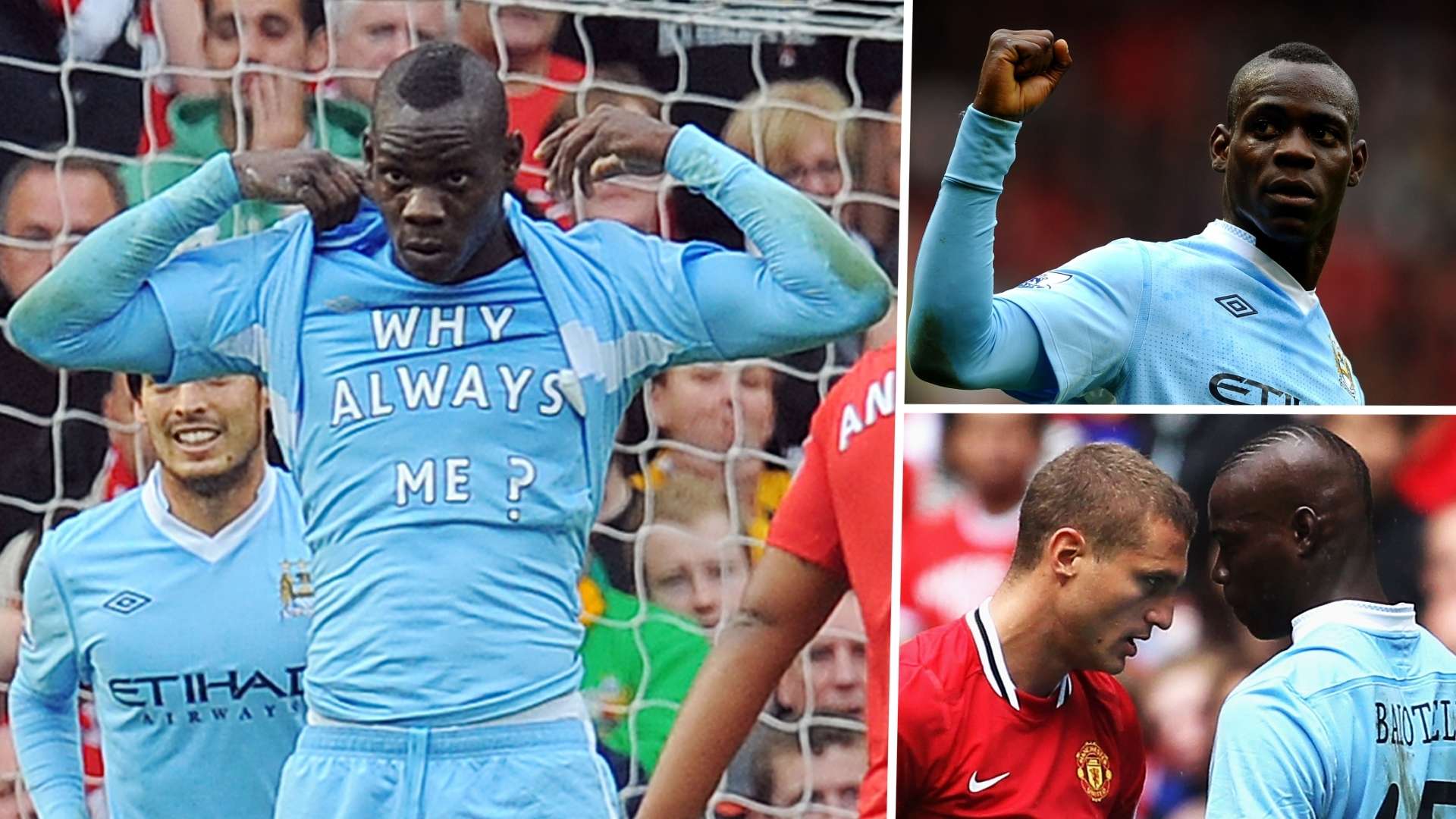The three words 'Why Always Me?' are synonymous with Mario Balotelli, with the iconic statement blending into the mystique of a player whose talent and off-field antics earned him recognition.
A career which has seen him win three Serie A titles, a Premier League and reach the final of Euro 2012 has produced plenty of highlight reel moments, but the most memorable for many fans remains the 'Why Always Me?' incident.
So what was it, when did it happen and what did it mean? GOAL brings you the definitive guide to Balotelli's famous statement.
What does 'Why Always Me?' mean?
'Why Always Me?' is a catchphrase coined by Mario Balotelli which was printed on an undershirt and revealed to the world as a message during the 2011-12 Premier League season.
The statement alludes to the reputation that the striker had earned in the media after joining Man City, with the football press in England and across the world seemingly scrutinising his every move.
A £24 million signing from Inter, Balotelli was considered one of the best young strikers in the world when he arrived at the Etihad in 2010 - with Roberto Mancini even suggesting he could be as good as Lionel Messi and Cristiano Ronaldo - so the football world was paying close attention.
All sorts of stories subsequently swirled around Balotelli during his time at City, with rumours of bust-ups with team-mates mingling with a wild array of other allegations, all of which served to contribute to an image of the player as a volatile 'bad boy' character.
Balotelli denied most of the tales which were attached to him, but he did admit to an incident involving fireworks in his home, where curtains caught fire. A mythology was nevertheless forged in a heady cocktail of truth and falsehood.
This intense coverage, whether it was true or untrue, evidently weighed on the mind of Balotelli and he decided to address it with the question, "Why Always Me?"
When did Mario Balotelli wear a 'Why Always Me?' shirt?
Balotelli wore the iconic 'Why Always Me?' shirt during a derby game against Manchester United at Old Trafford on October 23, 2011.
The stars aligned when Balotelli opened the scoring on 22 minutes and he proceeded to reveal the message on his undershirt. However, since he pulled his City jersey over his head, it earned him a yellow card.
That punishment paled into insignificance though, as City went on to demolish United 6-1, with Balotelli scoring another goal in the second half.
City kitman at the time, Les 'Chappy' Chapman, who printed the letters on the shirt, explained that the catchphrase was born in a moment of inspiration from the Italian striker.
"It was just the perfect thing at the perfect time for that perfect individual," reflected Chapman.
"He wanted me to print something on his compression shirt for the game and I said, 'Well, you can't print anything that's controversial or something that's going to be offensive to the United fans - or anybody really.'
"He thought for a minute or two and came out with one or two things. I said, 'No Mario, I don't think that's appropriate'.
"Then he just came out with it, out of the blue, he said, 'What about Why Always Me?' As soon as he said it, I knew that was the one."
Why did Mario Balotelli wear a 'Why Always Me?' shirt?
In 2012, Balotelli explained in a Guardian interview with former Oasis star Noel Gallagher that the 'Why Always Me?' message was intended a direct response to the frequently negative media coverage about him
"It was [a message] to all the people... talking bad about me and say[ing] stuff not nice about me," said the striker. "And they don't know me, so [I was] just asking 'why always me? Like, why always me?'"
In the same interview, much to the disappointment of Gallagher and no doubt many other City fans, Balotelli denied a number of his alleged antics, revealing that he did not drive around Manchester dressed as Santa Claus and that he did not give £1,000 to a homeless man, as had been reported in the press.
He also denied the story which said that he paid for a number of strangers' petrol on a whim and indicated that he did not take a truant student back to school and speak to the headmaster.




